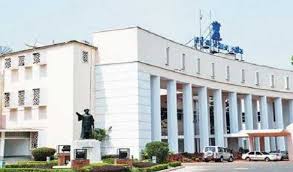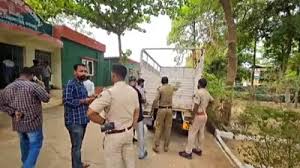The Odisha Universities (Amendment) Bill 2024 has been passed in the State Assembly at around 4:29 am on Thursday following a marathon debate between the ruling party and the Opposition that reportedly lasted for over 12 hours.
As per reports, Chief Minister Mohan Majhi was present in the Assembly throughout the marathon session. Deputy Chief Minister Pravati Parida was also present at the House on the occasion. However, Leader of the Opposition Naveen Patnaik was absent during the session.
Senior MLAs Ranendra Pratap Swain, Arun Sahoo, Ganeswar Behera and Dhruba Sahoo reportedly advocated strongly against the bill. However, they were countered by Higher Education Minister Suryabanshi Suraj.
Almost all the MLAs and Ministers of the ruling party were present during the session. Chief Minister Mohan Majhi questioned the absence of some of the MLAs as there was voting. CM Majhi also called some MLAs and asked them about the reasons behind their absence.
While BJD MLA Arun Sahoo advocated against the bill for over three hours Ranendra Pratap Swain took part in the debate for more than one and half hours. Ganeswar Behera also voiced against the bill for more than one hour. Higher Education Minister Suryabanshi Suraj countered the Opposition leaders for around one hour. Some other BJP leaders also strongly countered the Opposition leaders by joining the debate.
Eventually, Odisha Universities (Amendment) Bill 2024 was passed in the State Assembly following a marathon debate of more than 12.5 hours. Following the passing of the bill, Higher Education Minister Suryabanshi Suraj said that Odisha will witness a new era in the field of education. He also thanked all the members of the Odisha Assembly following the development.
However, BJD MLA Arun Sahoo slammed the government after Odisha Universities (Amendment) Bill 2024 was passed in the State Assembly.
"BJP government has brought the Odisha Universities (Amendment) Bill in a fickle manner. University Act was enacted in 1989 and it was amended after 31 years in 2020 by the then BJD government. As UGC has moved Supreme Court over the 2020 bill and the case is still pending in the Apex Court, the validity of the Odisha Bill will be discussed in the Supreme Court in coming days," said BJD MLA Arun Sahoo.
However, BJP MLA Irasis Acharya said that Odisha Universities (Amendment) Bill will bring a revolution in the field of education in the State.
Must Read: No plans for 300 units of free electricity to consumers: Odisha Dy CM
"Democracy was again strengthened in Odisha Assembly after BJP formed government in the State. Odisha Universities (Amendment) Bill 2024 has been passed in Odisha Assembly following a marathon debate over 12.5 hours. The bill will bring a revolutionary change in the field of education in the universities of the state," said Acharya.
Key Highlights Of The Bill
Revival of University Senate system to return again
Preparations will be in progress for the appointment of a new Vice Chancellor at least six months prior to the conclusion of the outgoing incumbent's term.
A three-member Appointment Committee will oversee this process. One member will be designated by the Chancellor, another by the University Grants Commission (UGC) Chairperson, and the third will be appointed by the university syndicate.
The committee will shortlist three candidates, ensuring that none faces any pending cases with the Anti-Corruption Department. The Governor will appoint the Vice Chancellor from the shortlisted candidates, with the nominee serving a four-year term or until reaching the age of 70, whichever comes first. Reappointment is permissible but limited to a single additional term.
The Chancellor retains the option to consult the state government as necessary.
In instances where the Vice Chancellor requires leave, responsibilities will temporarily transfer to a senior professor.
Should the Vice Chancellor commit administrative errors, the Chancellor is empowered to demand an explanatory report detailing why no corrective measures were initially implemented.
Before any disciplinary directive is issued, the Chancellor will engage in discussions with the state government. Investigations will be conducted as a preliminary step before any suspension actions.


.jpg)
.jpg)
.jpg)
.jpg)

.jpg)